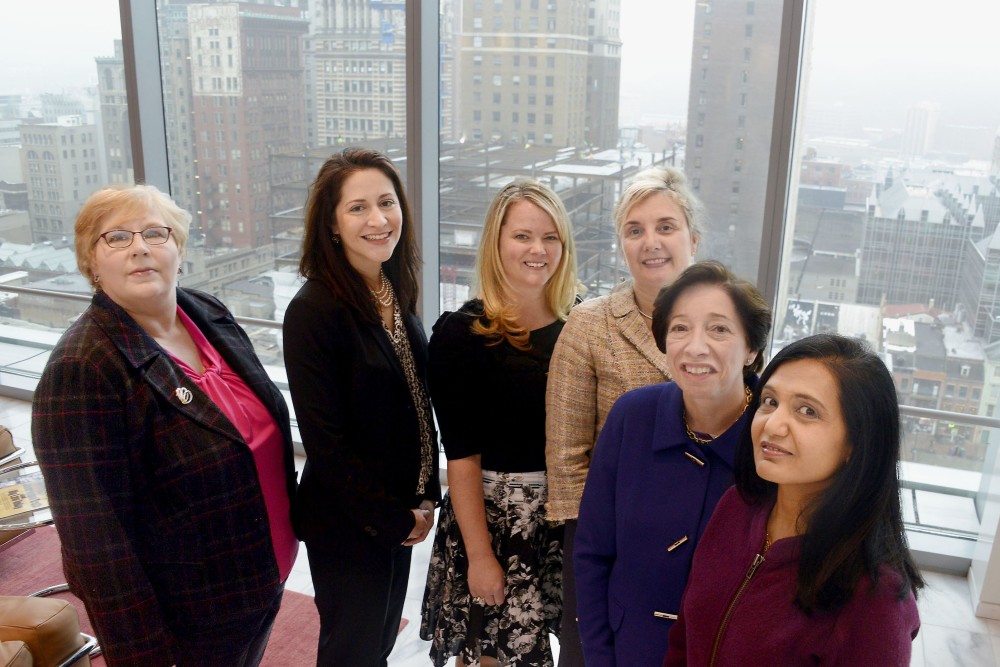By Kim Lyons
Pittsburgh Post-Gazette.
While most companies realize by now the importance of gender diversity, the reality is that unconscious and unintentional biases may remain, says Carolyn Duronio, partner at Reed Smith and a member of the Downtown law firm’s executive committee.
“A lot of people assume once they have a diversity group at their company, the problems are done and fixed,” Ms. Duronio said.
“It’s important to make sure those in management understand that it has not been solved. There may not be intentional discrimination, but unintentional exclusion is still exclusion.”
A recent study by research nonprofit Catalyst found that companies that have women in senior executive roles perform better across the board in the marketplace.
Reed Smith hosted a roundtable discussion at its Pittsburgh office earlier this month with the leaders of several Pittsburgh companies’ women and diversity initiatives, with the goal of talking through ideas for helping women’s initiatives advance.
Thirty people attended, including representatives from BNY Mellon, EQT, Highmark, MSA Safety, Giant Eagle and PNC.
The group had an ambitious agenda: How to align women’s diversity groups with their companies’ strategic plans; what role data play or could play in demonstrating success rates; and a look at some of the biggest successes and challenges of women’s initiatives. One of the biggest ones: engaging more men.
“It’s important to get men to be part of the dialogue, especially when dealing with that unconscious bias,” said Tonya Snyder, a global product manager at BNY Mellon. “They have to be able to understand that women need to be involved in decision-making.”
And a one-size-fits-all approach won’t work, either, said Shefali Shah, a managing director at BNY Mellon. “You can’t just lump all these general issues together. You need to look each individual situation.”
Often women are not aware of the value they bring to an organization, and sell themselves short when it comes to asking for promotions or raises, Ms. Shah added. “It’s really important to learn how to do your own self-evaluation, with a focus on your performance. And ask for feedback. If you did a good job, make sure it is noted.”
Not every company is up to speed on diversity and inclusion, the group agreed, but those still lagging can learn from those who have been there already.
“You have to make sure you can demonstrate instances that were successful, so company leaders and women have examples to point to,” said Jennifer Smokelin of Reed Smith, speaking to the “data” issue. She added that one company’s success could serve as an example for others.
buy zoloft generic buy zoloft online no prescription
“It’s not just about helping ourselves be better. We don’t have to reinvent the wheel,” Ms. Smokelin said. “But emergent organizations can stand on our shoulders.”
Jayme Butcher, partner at Reed Smith, is head of the Women’s Initiative Network at the firm’s Pittsburgh office. Reed Smith has had a diversity initiative in place for several years, and it is productive because of the buy-in of management, Ms. Butcher said. The firm has been able to identify problems and devise solutions, she said.
“We saw we were losing women after about a five- or seven-year period, and that was how our part-time and flex-time programs really came together,” Ms. Butcher said.
She added she was encouraged not only by the discussion at the roundtable Dec. 3, but by the amount of feedback she has received since.
“It’s very exciting — so many people emailing to follow up and say they want to do it again,” Ms. Butcher said. “This has a lot of momentum, and we’re hoping to keep it going.”














































































































































































































































































































































































